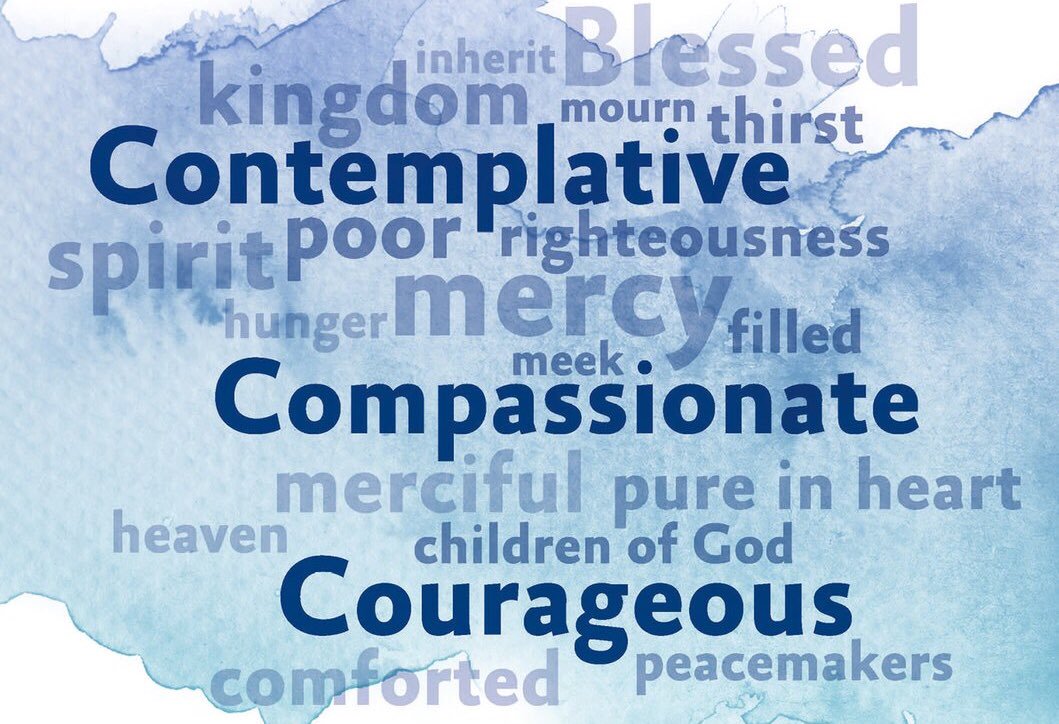ARTICLE VI – MINISTRY
Section 1. Priesthood of All Believers
The Coworkers of Christ wholeheartedly affirms the principle of the universal priesthood of all believers (1 Peter 2:5-10). This means every member is called by God to actively share the Gospel message within the Church and the wider world.
Section 2. Lay Ministry
Recognizing the universal priesthood of all believers (1 Peter 2:5-10), the Coworkers of Christ encourage all members to actively participate in ministry within the Church and the world. This translates into a variety of lay ministry opportunities, reflecting the diverse gifts and callings of our members. Lay Ministry Opportunities in the Sacramental Community of the Coworkers of Christ:
- Pastoral Care: Providing compassionate care to those in need through visitation, prayer, support groups, or other forms of presence.
- Teaching and Formation: Sharing the faith through teaching children, youth, or adults in various settings, leading small groups, or facilitating retreats.
- Justice and Outreach: Engaging in works of justice and service, advocating for the marginalized, working to address social issues, or participating in community outreach programs.
- Hospitality and Welcome: Creating a welcoming and inclusive environment for all who come to the Coworkers of Christ, whether as visitors or members.
- Creative Ministries: Utilizing artistic talents in music, writing, visual arts, or other creative expressions to share the Gospel and enrich the community.
- Intercessory Prayer: Supporting the community and the world through dedicated prayer.
- Mentoring and Spiritual Direction: Walking alongside others on their spiritual journey, offering guidance and support.
- Community Leadership: Serving in leadership roles within the Coworkers of Christ, helping to guide and shape the community’s life and mission.
This list is not exhaustive, and new ministries may emerge as the community discerns the needs of the Community and the world. The Coworkers of Christ are committed to supporting and empowering lay ministers to use their gifts to build up the Body of Christ and share the love of God with all.
Section 3. Orders of Sacramental Ministry
The Coworkers of Christ recognize eight distinct sacramental ministry roles, categorized as follows:
- Minor Orders (five roles): Porter, Lector or Reader, Exorcist or Healer, Acolyte, Sub-deacon
- Holy Orders (three roles): Deacon, Priest or Presbyter, Bishop
Section 4. Prerequisite Tonsure
The journey towards any sacramental ministry role within the Community begins with tonsure. This traditional ceremony signifies dedication to a life of service in the Coworkers of Christ. To participate in the tonsure ceremony, an individual must be at least eighteen years old. If the candidate is a minor (under 18), written consent from their parent(s) or guardian(s) is required through a Power of Attorney submitted to the Minister General.
Section 5. Qualities of a Candidate
Those seeking ordination as Deacons, Priests, or Bishops are expected to demonstrate proficiency in fulfilling the responsibilities associated with the Minor Orders. This serves as a practical foundation for their future ministry.
Section 6. Guidance and Formation:
The Minister General, in collaboration with the General Council, plays a vital role in guiding candidates for Holy Orders. This guidance encompasses both daily living and theological education to ensure well-rounded preparation.
Section 7: Commitment to Standards
All candidates for Holy Orders are required to undergo canonical examinations. These examinations serve as a benchmark for their knowledge and readiness for ministry.
Section 8. Ministerial Education
The Coworkers of Christ recognize the necessity for a well-educated clergy. This commitment extends beyond initial formation to encompass ongoing professional development.
- All ordained clergy are expected to participate in formal continuing education opportunities on a yearly basis. The Minister General, in collaboration with the Definitor General of Ministerial Formation, will provide guidance and recommendations for these resources.
- Deacons seeking ordination to Priest (Presbyter) must successfully complete written examinations in the following core areas:
- Holy Scriptures: A thorough understanding of the Bible and its message.
- Church History: Knowledge of the historical development of the Church.
- Theology: A solid foundation in Christian doctrines and beliefs.
- Ethics and Moral Theology: Discernment on applying ethical principles to ministry and personal life.
- Theory and Practice of Ministry: Understanding the theological underpinnings of ministry alongside practical skills for effective service.
- Homiletics: Development of skills in crafting and delivering compelling sermons.
- Liturgics: Expertise in leading worship services according to the Church’s tradition.
- By fulfilling these educational requirements and actively engaging in ongoing learning, clergy within the Coworkers of Christ are well-equipped to serve their communities faithfully and effectively.
Section 9. Making of a Deacon
The Coworkers of Christ adhere to specific criteria for the making of a Deacon:
- The standard minimum age for ordination to Deacon is twenty-one years old. Candidates must undergo a period of formation and discernment following their tonsure and admission as a candidate for Holy Orders. This time period is typically at least one year.
- In rare instances of exceptional need, the Definitor General of Ministerial Formation may grant an exemption to the one-year waiting period. This exception is considered only if the candidate meets both of the following qualifications:
- The candidate must still be at least twenty-one years old. The candidate possesses a Bachelor’s degree in Sacred Theology (or its equivalent). This exception acknowledges the advanced preparation of the candidate and allows the Church to address urgent needs when appropriate. However, the importance of the formation period is generally emphasized for a well-rounded foundation in ministry.
Section 10. Ordination of a Priest
The Coworkers of Christ have established guidelines for ordination to Priest (Presbyter):
- The minimum age for ordination to Priest is twenty-five years old. Candidates must have served as a Deacon for a minimum of one full year prior to ordination as Priest. This period allows them to gain valuable practical experience in ministry.
- Ordinarily, a Master of Divinity degree (or its equivalent) is required for ordination to Priest. This advanced degree equips candidates with a deeper understanding of theology and prepares them for the broader responsibilities of the priesthood.
- In exceptional situations of significant need within the Community and at the recommendation of the Definitor General of Ministerial Formation, the General Council may consider an exception to the one-year waiting period or the Master’s degree requirement. However, for such an exception to be granted, a unanimous affirmative vote from all members of the Council is necessary. This highlights the seriousness with which these requirements are considered and ensures that exceptions are granted only in truly extraordinary circumstances.
Section 11. Consecration of a Bishop
The Coworkers of Christ adhere to strict protocols regarding the selection and consecration of Bishops:
- Priestly Experience: A candidate for Bishop must have served as a Priest (Presbyter) for a minimum of seven full years before consecration. This ensures seasoned experience in pastoral ministry. The minimum age for consecration as Bishop is thirty-three years old.
- To be consecrated as Bishop, a candidate requires the unanimous consent of the General Gathering. This emphasizes the importance of widespread community support for episcopal leadership.
- The Community affirms the importance of maintaining at least one consecrated Bishop within the Community. This ensures a clear line of apostolic succession and the ability to continue essential episcopal and abbatial functions.
Section 12. Annual Evaluations
In the spirit of continual improvement, the Coworkers of Christ are committed to providing all vowed members with an annual confidential performance evaluation. This evaluation serves as an opportunity for reflection, growth, and encouragement.
- Minister General: The General Council conducts the annual evaluation of the Minister General.
- Vowed Members: The Minister General is responsible for evaluating all other vowed members within the Community.
- Exceptional Circumstances: In rare situations, and with the express consent of the vowed member being evaluated, the Minister General may designate a different evaluator. This designated individual would be a respected member of the Community known for their wisdom, knowledge, and piety.
- All evaluations are conducted and maintained with strict confidentiality.
- The evaluation process is guided by the Holy Spirit. The goal is to offer constructive and supportive feedback that empowers clergy to:
- Live a life that exemplifies Christian principles.
- Lead actively and effectively within their ministerial roles.
- Fully embrace the calling God has placed upon them.

